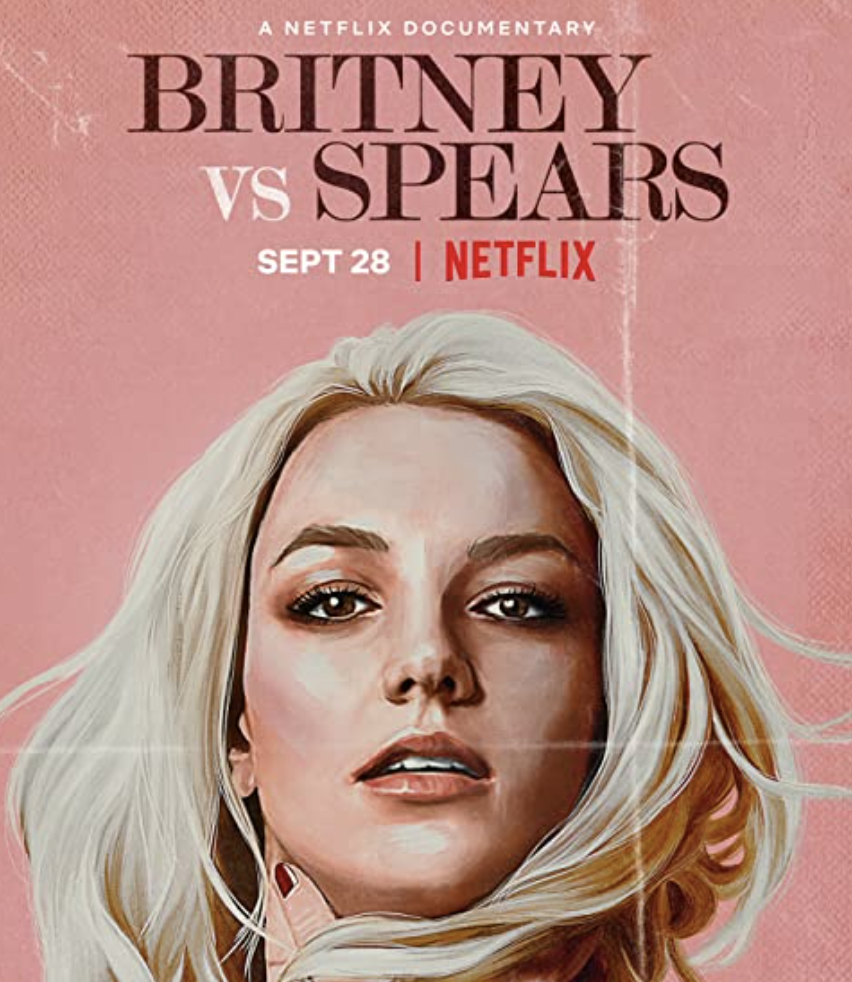I don’t know about you, but when I’m overwhelmed it feels impossible to focus and just do one thing at a time which almost always makes the problem feel worse. So where do you even start?
Stop and breathe. Meditation is really important, especially when you feel like you don’t have time for it. Even if you only do it for three minutes. Put your phone/laptop way, step away from our desk/kids/spouse/coworkers and breathe in and out. This will help you slow down your nervous system which is essential in order to focus. If your body is dysregulated, thinking clearly is nearly impossible.
Don’t pretend you aren’t anxious/angry/afraid. When we pretend or avoid, those things tend to make themselves bigger so that we can’t avoid them. If you are anxious, close your eyes, breath slowly for 90 seconds and ask what the anxiety needs. If it needs water, reassurance, a completed task to ask for help whatever the thing it wants, check in and see if you can do that.
There are times this is not possible, particularly when it wants clarity or information that is not available or when you want someone else to do something. It’s ok to acknowledge that you wish you could have something that is simply not available in this moment.

If I can’t have the thing I believe will give me relief, what is the next most right thing/action? What can I do to take care of myself in this moment? Maybe you do need to get water, go for a walk, etc. Or perhaps the most right thing is to send the email you have been avoiding. After you give yourself a moment to breathe and be sincerely curious about your own needs, give yourself the opportunity to allow the next most right thing.
I will often hear from people that they tried something once and it didn’t work so they didn’t do it again. That is a bit like saying, I went to the gym once and I didn’t leave with a 6-pack so there is no point in going back. When we are really facing something difficult, we will likely need to take several moments to breathe. At first, I would encourage you to do it for at least three minutes, three times per day. This will give you a mini reset multiple times through the day to refocus and help to soothe your nervous system. And before you think to yourself that you don’t have time, how many minutes to do you waste on social media a day?
The more practice your body gets at soothing, the easier it will be and the more quickly you will feel relief. My challenge to you is to do it again and again. Unfortunately, there is not a quick fix to real and lasting change. In fact, the golden rule of change is that it is difficult. If it were easy, no one would be stressed.
This is hard AND you can do it.
As always, I’m here. If you are ready to work on having the life you want, call me and let’s get started!
Most of us struggle with making big decisions, they are difficult for a reason. Often, it isn’t that we are uncertain, it’s that we know that it will be painful to act. In an effort to avoid pain, we often delay and second guess.
First, that’s ok. If often remind myself that there are very few decisions in life that cannot be made slowly and thoughtfully. Typically, the times we truly need to make quick decisions are in emergencies. Otherwise, take a little time consider your choices. You may find that you know exactly what you know you need to do but you simply aren’t ready.
There are times when making this decision will require resources. Do you need financial resources? Do you need emotional resources? While it is ok and at times even necessary, I want to caution you here. With big, difficult, scary things you will never feel ready or ready enough. There will always be a reason to put it off or wait. There will never be a perfect time to do what you need to do.

Not too long ago, I was walking my dog and thinking about the things that were causing me to avoid or put off or delay the decisions or even actions I want/need to take. For each thing, it was fear. Fear that I will fail. Fear that I will disappoint/upset someone. Fear that I will be uncomfortable. Then I had this thought, what will I allow fear to steal from me and for how much longer? I can’t say that it was a particularly comforting thought but it did make it feel like I wanted to act.
Certainty, is rarely available to us in times of stress, even though we feel like we know what will happen. And maybe do an extent you do know what will happen. But how long do you want to wait for the life you want? You know what your avoiding isn’t going anywhere. How long do you want to feel stuck here?
As always, I’m here. If you are ready to work on having the life you want, call me and let’s get started!
I recently read a short story about a little girl who was sent to live with relatives that she didn’t really know for the summer. On the journey there, she watched the scenery go by and wondered if her life with these relatives would be better or worse than being home with her parents. She didn’t get swept away in anxiety or fear, she was simply curious.
While I read it, I noticed how the little girl allowed her mind to wonder or tell stories (something we all do 100+ times each day) but instead of attaching to one outcome, she had a peace or curiosity about not knowing. And I was impressed with that. In each story, there was clearly one with a better outcome for her than other(s).

After reading, I started to think what it would be like to try and actively practice that. There is no way to not allow your mind drift off and create potential scenarios but what if we could practice not attaching ourselves to them as she did? Mindfully choosing to be curious about what could happen. I realize that in times of stress and anxiety, this is far easier said than done. However, when we are in the midst of learning something or doing something difficult, we are rarely right about how it will end.
Consider a difficult day or situation you had in the last week…. If I asked you while it was happening what the outcome or lesson would be you would likely give me one answer. But if I asked you a day later, a week later or a month later, your answer is likely to be very different.
It is important to remember that when we are in the difficult time/situation, we cannot see it as clearly as we can when it’s over. “Hindsight is 20/20.” When we’re in it, we can’t have all the facts and we can’t know the outcome until something is done/finished/decided. So what would it take for you to give herself permission to believe that a positive (or at least not the worst one you can think of) outcome is possible? In a stressful time, that may be the only comfort or gift you can give yourself.
As always, I’m here. If you are ready to work on having the life you want, call me and let’s get started!
Have you noticed how scary the unknown is? Even just thinking about the unknown makes the muscles in my shoulders wake up. In the abstract, it’s not so bad but when we think about specific unknowns in our lives, it’s so easy to get carried away. Like, how will I ever be able to afford to retire? Is a recession coming? What if I get laid off? What if, what if, what if?
We scheme and plan and try to control for the unknowns. To some degree, we can plan ahead. Certainly, having a plan for retirement is better than just crossing your fingers and hoping it all works out. But too often we tend to imagine that we can eliminate risk and pain and control for all the variables.

If COVID taught me anything, it’s that there is no way to control for every variable. Without the ability to see into the future, there is no way to be in complete CONTROL of everything.
The unknown is so scary because it represents the feeling that we may be out of control at some unknown point in the future. That point could be in ten minutes, ten days or ten years but the mere suggestion that you could take it as it comes makes it seem as though you are living with reckless abandon.
So how do we practice living in the middle? If one end of the spectrum is laissez-faire and the other is an inability to even entertain that you haven’t controlled for every scenario, what does the middle look like? Imagine a life where you did what you could reasonable do (pay your bills, floss, go to the grocery store, etc.) and when the unforeseeable happens, you give yourself the patience and grace to figure it out.
Personally, I think that the internet convinced us culturally that all things are knowable. And if all things are knowable, then we should never be caught unaware. AND if all things are knowable, perfection exists and can be attained. But the internet can’t know it all and certainly can’t solve it all.
I will give you a simple example; where is the best place to live? That is so subjective!!! I lived in Alaska for three years. It is beautiful and is home to some rich Native American cultures and traditions. There is no education like the one you can get by being outside and figuring it out. But I never want to live there again. I much prefer to be warm. But there are tons of people who move there or grow up there who love it and live really happy lives there. Who is right?
It is not possible to eliminate the unknown and it is not possible to make “perfect decisions/choices. What is possible, is to speak to yourself with compassion and trust yourself to solve the problems that come your way. You have in the past, you can here too.
As always, I’m here. If you are ready to work on having the life you want, call me and let’s get started!
My last blogged looked at why we get persuaded or why we may even let ourselves get persuaded. It seems equally important to consider why others would want to persuade us.
Most of us want what we want, the way we want it, from whom we want it and when we want it. That’s just human nature. That by itself doesn’t make someone bad or manipulative or uncaring about your feelings and needs.
If I make a compelling case and persuade you to see something from my perspective, that likely suites me and my agenda. In my opinion, the only difference between the two is the conation of the words and perhaps the spirit behind each one.
Earlier today, a therapist friend called me with an ethical question about CPS reporting. My friend knew the answer was to report but someone else had countered her argument with such conviction that it caused my friend to question what she knew to be true. I don’t think the other person was intentionally being misleading. In fact, I think that person was convincing themselves just as much as my friend to keep from being wrong themselves.
We see this A LOT in human behavior. Think about a Ponzi scheme. Something will sound too good to be true but people wanting to invest well and get ahead financially, will allow themselves to be persuaded (or manipulated) and they may even persuade others as well. It is easier to believe things we want to believe than things that cause harm/pain/discomfort.
People will basically persuade you for one of two reasons; they believe it is their best interest or they believe it’s in yours. On rare occasions it could be both.
For example, the person creating a Ponzi scheme wants your money. They need to convince you that they have mastered some sort of principle or market that no one else has ever tapped into and they are doing you a favor to let you in on the deal. For their scheme to work, you need to be eager to give them the money so they will either act like you have no time to think and/or asking questions makes you a jerk/loser. They need to keep you from thinking too deeply so that you will give them the money they want.
On the other hand, someone who cares for you may want to you to see things their way as they believe your life will truly get better if you do. This happens an infinite number of times between parents and kids, it happens in romantic relationships and friendships.
Imagine telling your kids about all the ills that could befall them if they don’t brush and floss their teeth regularly. You’re attempting to persuade them for good reason. You want them to be healthy (you would also like to avoid big dental bills) and getting them on board, will be good for everyone involved.

This one can slide into codependent territory too. Imagine your best friend is in a relationship you think isn’t good enough for them so you try to get them to see it the way you do. Your motives are good but you can’t decide how your friend choses to live their life and you could accidently do harm to the relationship.
Persuasion isn’t bad unto itself but it is really important that we think through who is planting ideas in our heads and if they are actually serving us. It is just as important to go a step farther and think about what we are attempting to persuade others to do. Do you have the right to ask someone to live in a way that doesn’t feel true to themselves?
As always, I’m here. If you are ready to work on having the life you want, call me and let’s get started!
Do you ever hear yourself agreeing to do something you don’t want to do and wondering why? Is it obligation? Is it pressure from the other person? Is it FOMO? What persuades us to do things?
The definition suggests that we are induced to believe by appealing to reason or understanding. But it when we talk about being persuaded it doesn’t really feel like that. It often feels like we were convinced to do something that we wouldn’t normally do. The truth is, we are often persuaded for one of two basic reasons; we want to but don’t want to admit it and fear.
There are an infinite number of these but you get it. We all do things that we think we are supposed to do and these are often performative or we do them to make people think about or see us in a certain way. Since we aren’t doing them for ourselves, they don’t have as much power. So the minute someone or something comes along and gives us even the smallest excuse, we abandon the should and do what we want. Fear can be a bit more complicated.

I hear that a lot, particularly when it comes to people doing things for and with their families. Obligation is powerful. There are times when it is important to show up for people that matter to us. Obligation and veer into an unhealthy space pretty quickly if it’s not reciprocal. When you feel yourself pulled by obligation, it is important to consider if the other person would feel the same pull for you and would they act on it. If the answer is no, then it’s time to reconsider.
I hear less about the fear of missing out (FOMO) since COVID. Though it still seems to be a thing, it seems like there was such a high value placed on missing out for a long time that there was a recalibration which has probably been good for some and not for others.
If you still have FOMO, it’s important to know that there is a real evolutionary reason to fear being left out. When we were living in caves and tribes, it was a death sentence to be kicked out of the tribe. For many people, when the tribe gets together and you aren’t there (or worse aren’t invited), it can be really scary to feel as though you have been removed from the tribe. Don’t beat yourself up for wanting to be part of the group, that is normal and reasonable.
There are some REALLY persuasive people out there who can make people who are confident their boundaries second guess themselves. For people pleasers, these folks are downright dangerous. Part of recovering from being a people pleaser is noticing when and who pushes those people pleaser buttons inside you.
People will always want their way. That doesn’t necessarily make them manipulative or bad. It’s our job to know what we want and hold ourselves accountable when we allowed ourselves to be convinced or persuaded. Remember, that there are VERY few things in life you can’t undo.
As always, I’m here. If you are ready to work on having the life you want, call me and let’s get started!
Personally and professionally I meet a lot people who long to be perfect. It sounds great in theory. To drive for something that by definition, is “complete beyond practical or theoretical improvement.” Of course, the problem with that is that there is really no such thing as “beyond practical or theoretical improvement.” Because there is always a way to imagine (or theorize) something could be bigger/better/faster.
Most of us logically know there is no such thing as perfection. So why do we get hung up on needing things to be perfect?

First, we are taught in school both in overt and covert ways from the time we are children that perfection exist. At school we have the opportunity to get perfect test scores/grades, awards for perfect attendance, praise for perfect behavior.
Ads, tell us about, “the perfect night’s sleep” or the “perfect way to express your love” or the “perfect solution for something.” Perfection is a moving target, especially when it comes to sleep. How many people like to sleep the same way?! So how can a company guarantee that everyone will have a perfect night’s sleep with their product?
Our families have stories about the perfect job/career, vacation, person to date, friends to play with, places to live. Not to mention, perfect behavior and for most of us it was made perfectly clear when our behavior was out of line from that.
Social media – DUH! I don’t think I need to expand that much. Just by being on social media, we open ourselves up to the comparison game where we compare ourselves to others and tell ourselves we aren’t doing well in some area as a result.
Friends do it too! While, they typically don’t mean to do it, our friends will take out their insecurities on us by projecting perfection onto us.
The single biggest reason we seek perfection from ourselves is a desire for control. Hear me out! We’ve all had our heart broken, been embarrassed, was bullied or kicked out of a friend group and we all have insecurities. Our brains are built to seek pleasure and to avoid pain. So when something really painful (both physical pain as well as emotional/mental pain) happens, our brain creates a systems report that names the injury and gives a reason why the injury was caused.
This pain story is often written around our insecurities. If the person I like doesn’t like me back and I love myself well, the system report looks like;
“Ouch! I wish that person liked me back. Oh well, I’ll find someone who does.”
If the same thing happens and I don’t love myself well, the system report will probably be more like;
“Of course they don’t like me. Why would they? I’m not good enough.”
When your story looks more like the second one. You brain goes into over drive to find what part of you was not good enough and try to route it out. Unfortunately, this is rarely accurate and often leads to more heartbreak.
We seek perfection as an attempt to avoid heartbreak/heartache. There is nothing wrong with self improvement and wanting to do well. The problem comes when there is no end and no self compassion for the outcomes that are less than “beyond practical or theoretical improvement.”
As always, I’m here. If you are ready to work on having the life you want, call me and let’s get started!
I don’t know about you, but for as long as I can remember, I’ve held myself to a standard that has felt totally unattainable. Growing up in my family, I got a lot of messages about perfection. Though I was often told I didn’t need to be perfect, I was typically chided when I wasn’t. “You just need to try you’re best.” But when my best wasn’t a perfect score on a test/project or I didn’t win the race, it was made clear that my “best” simply wasn’t good enough.
In April, I was able to take a little time off and just sit. A lot of that time, I spent sitting on the beach, thinking, reading and staring off into the distance where the water and the sky met. While I sat there I thought a lot about perfection and the pressure we put on ourselves in its pursuit.

While I thought about perfection, it occurred to me that one of the many reasons it is unattainable is because in so many instances, perfection in one space contradicts perfection in another space.
For example, if I perform “perfectly” at work, I have to sacrifice things outside of work. Family, friends, health, pets, etc. all have to come second to work in order for me to ‘do it all’ at work.
Not to mention all of the contradictions in our culture!! Appear to be super put together, but don’t work hard at it. Achieve work-life balance (by the way, I’m still not sure I fully get what that even means) and achieve lofty goals. Travel all the time but be good with money and get ahead in your career. Be open and vulnerable but don’t take too much space. “You can have it all!” (Ugh! Just typing that made something in my chest tighten.) You can be beautiful in any shape but be sure to use this filter so that people don’t leave comments about how ugly you are.
Not to mention the fact that perfect feels like a moving target. When I was young the physical ideal was pale and unhealthy skinny. Now I feel like the ideal is a six-pack AND curves.
While sitting on the beach it occurred to me that we are each working with our personal definitions of perfection based what was valued (or lacking) in our homes growing up, what was valued by our mentors and the people we look up to even now as well as the people we want to be or become.
Wouldn’t it be great to examine our personal story of perfection and challenge it? How many of my definitions of perfections are in conflict with each other? Do those stories even align with my values?
What if you took control of YOUR definition of perfection and made it yours? As a thinking, feeling, breathing adult you can understand that each situation you face is going to require different things from you and the “best” outcome will be relative.
As always, I’m here. If you are ready to work on having the life you want, call me and let’s get started!
I have been surprised and impressed with how many people decided, seemingly all that the same time, that Britney Spears should be released from her conservatorship. Years ago, when Britney was having public meltdowns people seemed to believe she needed help. What I don’t understand is what changed everyone’s mind? Was it as simple as hearing from her what she wanted?
The recent Netflix documentary, “Britney vs Spears” gives some interesting insight into what had, until recently been a very private matter. I don’t typically pay much attention to celebrity gossip, for the most part I feel like it simply isn’t any of my business. I watched the documentary after a therapist friend mentioned it to me. I thought it was interesting and well researched and I felt as though it missed some points.

Conservatorship essentially means that a person or business takes over the decision-making ability for an individual.
In our culture we have agreed that the more vulnerable among us (children, elderly, disabled) should be afforded additional protections. But there are two problems with this; first, where there is prey there are predators, second when does an individual lose free will?
As a culture we have agreed that people get to choose how they live. For example, we only institutionalize people against their will after being convicted of a crime or the (sometimes) subjective option that someone is a danger to themselves or others. When we remove someone’s ability to make autonomous choices, it is NOT supposed to be because we don’t like them or their choices.
Most of us have had or know someone who has had an elderly relative who at some point was no longer able to care for and advocate themselves. It’s this vulnerable population that conservatorship was designed for.
Being wealthy and or famous does not mean that someone is qualified or capable of making good financial decisions. Nicolas Cage, Lindsay Lohan, Wesley Snipes, Ja Rule, etc. have all joined the ranks of people who have made substantial financial mistakes and it doesn’t seem as though anyone is looking to take their decision-making power from them. People are allowed to make poor financial decisions. How many people legitimately thought they would get rich by “investing” in Beanie Babies?!
The documentary hints that Britney may have been addicted to or misusing Adderall at one point. Adderall is an amphetamine and is addictive. Again, addiction alone is NOT a good enough reason to take someone’s decision-making power from them. It can be enough that you lose custody of children and are no longer able to hold certain jobs/positions of power. But we don’t have millions of people who are addicts put into conservatorship.
How many people do you know (male or female) that just can’t seem to get it right in dating? People are allowed to have bad taste in partners. That seemed to be part of the justification for placing Britney into a conservatorship which is insane to me. There are countless books, seminars, support groups and research studies about how to find better partners!
It is not lost on me that I’m only thinking about all of this because I consumed media about it. And I strongly believe that media was part of the problem. She was chased by paparazzi in part because we all seem to think we have some sort of right to private information about celebrities that most of us have never and will never even meet. It’s really none of our business what she does in her free time, who she dates, etc.
I will admit that I’m a fairly private person. My personal nightmare would be to appear on a reality TV show. I can only imagine what it would be like for people to be following me around ALL the time and making judgments about me from the limited things they see. Imagine that in the most stressful time of your life (like a divorce and custody battle), you were also being stalked. It seems pretty obvious that at least part of her problem is a huge lack of privacy.
A friend of mine made a really good point the other day. He said something like, “You understand that the government has done bad things, right? When do you think that stopped?” I cannot conceive of how and why this was even allowed to begin with except for money. People knew how much she was worth and they found a way to steal (yeah, I said steal) money from her.
There is a great dark comedy, also on Netflix, “I Care A Lot” that came out in 2020 and demonstrates how predatory these kinds of conservatorships can be. Just like anything else we force on people, we get it WRONG sometimes. My hope is that the courts will take a much harder look at these kinds of cases in the future and/or that I’m never rich so that no one tries this on me.
As always, I’m here. If you are ready to work on having the life you want, call me and let’s get started!